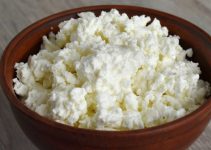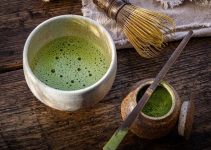Garlic has been used since ancient history due to its health benefits.
Even Hippocrates, known as the father of Western medicine, used it to treat various illnesses.
Recently, modern science has confirmed many of its benefits.
In this article, you will find the top health benefits of garlic that have been proven in human research.
Health benefits of garlic:

1. Garlic May Help Fight Inflammation
Researchers believe that chronic inflammation is associated with many diseases. It was linked to arthritis, heart disease, cancer, diabetes, & bowel diseases like ulcerative colitis and Crohn’s disease.
According to a study, garlic can help reduce inflammation. It is known to inhibit the activity of proteins that are common in people with rheumatoid arthritis.
People who consumed garlic supplements for eight weeks experienced lower daily pain and fatigue, fewer tender joints, and lower inflammatory markers compared with a group of people on a placebo.
2. Garlic May Help Reduce Fatigue
Garlic has been considered to be a natural remedy for people who suffer from fatigue.
A study conducted in 2012 suggests that garlic affects reducing fatigue because it contains S-Allyl cysteine sulfoxide, a chemical compound that has beneficial effects on muscles and the nervous system.
Garlic compounds also increase oxygen in the body, which could help prevent a lack of energy.
Garlic extract can kill bacteria and prevent infection. It also increases blood circulation and oxygen supply to the cells of the body.
Olympians in Ancient Greece were given garlic to reduce fatigue.
Finally, other studies suggest that consuming garlic can reduce fatigue from exercise.
3. Garlic Contains Compounds With Medicinal Properties
Garlic was a widely used ingredient throughout ancient history due to its medicinal properties.
In fact, many civilizations (Chinese, Egyptians, Romans, Babylonians, and Greeks) documented its use.
With the advancement of science, it has been learned that most of the health benefits of garlic come from sulfur compounds formed when garlic is crushed.
Among the most famous compounds in garlic, we have allicin, which is only present briefly when garlic is cut or mashed.
Garlic also has other healthy compounds as diallyl disulfide and s-allyl cysteine.
4. Garlic is Highly Nutritious And Is Low In Calories
It is important to know that one clove of raw garlic contains:
- 2% of the Daily Value (DV) of Vitamin B6
- 2% of the DV of manganese
- 1% of the DV of Selenium
- 1% of the DV of Vitamin C
- 0.06 grams of fiber.
In addition, it contains amounts of calcium, potassium, vitamin B1, phosphorus, copper, and iron.
Garlic provides 4.5 calories, 0.2 grams of protein, and 1 gram of carbohydrates.
5. Garlic Can Combat The Common Cold and Flu Symptoms
A 12-week study found that a daily garlic supplement, compared to a placebo, reduced the number of colds by 63%.
In addition, garlic supplementation reduced the average duration of cold symptoms by 70%.
On the other hand, a study ensures that a high dose of aged garlic extract (2.56 grams per day) reduces sick days by 61%.
Notably, a new study highlighted that the evidence is not yet sufficient.
6. Garlic May Help Lower Blood Pressure
Garlic has been shown to have benefits in terms of lowering blood pressure.
Based on humans, one study found a 600-1,500 mg dose of aged garlic extract to be as effective as the drug Atenolol in lowering blood pressure.
To have the desired effects, supplements should be the equivalent of four cloves of garlic a day.
7. Garlic Improves Cholesterol Levels
Garlic has been shown to have a significant impact on cholesterol levels. Studies have shown that garlic can reduce the risk of heart disease and other heart-related problems.
As a superfood, garlic has some significant health benefits for people struggling with cholesterol problems caused by high blood pressure or high LDL cholesterol levels.
It has been proved that garlic supplements lower cholesterol by about 10-15%.
According to one study, garlic reduces LDL (the “bad”) but does not have a reliable effect on HDL (the “good”).
8. Garlic May Help Prevent Alzheimer’s Disease and Dementia
Garlic contains antioxidants that help fight oxidative damage that leads to aging.
According to researches, garlic supplements increase antioxidant enzymes and reduce oxidative stress in people with hypertension.
Therefore, garlic reduces the risk of diseases such as Alzheimer’s disease and dementia.
9. Garlic May Help You Live Longer
Although the effects of garlic on lengthening lives are difficult to verify, taking into account the aforementioned, it likely has positive effects on making people live longer.
Especially if we consider that garlic is used to fight arterial and infectious diseases.
10. Garlic Might Improve Athletic Performance
No matter what the research says, when it comes to the health benefits of garlic, there are a lot of conflicting opinions.
As with any food, garlic is not beneficial for everyone and could have negative effects on some people. So far, there have not been any conclusive studies on garlic’s effects on athletic performance. The lack of clear evidence makes this topic hard to research and analyze.
The result is due to how difficult it is to design an experiment that would provide conclusive evidence about whether or not garlic improves athletic performance or any other relevant metric.
A study showed that people with heart disease who took garlic oil for 6 weeks could reduce their heart rate by 12% and improve their aerobic capacity.
However, another study carried out on nine cyclists could not verify its positive effects on physical activity.
11. Garlic May Help Detoxify The Body
Garlic is an amazing herb with health benefits. One of the most common and most famous health benefits of garlic is its detoxifying properties.
It is a natural detoxifier and has been used to help fight bacteria, viruses, and other pollutants.
Garlic has been found to help purify the blood, improve insulin sensitivity, and help rid the body of toxins. It’s also been shown to reduce heart disease risk factors such as triglyceride levels and cholesterol.
In a 4-week study amongst workers of a car battery factory (with high exposure to lead), garlic was shown to help reduce blood metal levels by 19%. It can also reduce the effects of toxicity, such as headaches or hypertension.
Also, consuming three doses of garlic per day works even better than the drug D-penicillamine in reducing symptoms.
12. Garlic May Improve Bone Health
Garlic is rich in folic acid, which is essential for building new healthy bones. It also contains sulfur which promotes the absorption of calcium and magnesium into the bones and other minerals such as potassium, sodium, zinc, copper, and manganese.
Studies in rodents showed that garlic helps reduce bone loss by increasing estrogens in females.
As for humans, a study conducted in menopausal women found that consuming a daily dose of dried garlic extract helps reduce estrogen deficiency. In other words, garlic is good for women’s bone health.
It is noteworthy that garlic also has beneficial effects on osteoarthritis.
13. Garlic May Help Prevent Diabetes
Studies show that garlic has been shown to have anti-diabetic properties. In fact, it has been proven to lower blood sugar levels and reduce insulin secretion from the pancreas.
Garlic is also an excellent source of fiber and other minerals like manganese, copper, and selenium, which help with metabolic function.
There are many ways in which people can incorporate garlic into their daily life to prevent diabetes: cooking with it as the main ingredient, processing a garlic clove or two with honey for a sweet treat, adding it to dressing, or adding it to vegetable dishes that you want to make more nutritious.
14. Garlic May Help Fight Cancer
Some preliminary studies show garlic might help fight cancer and prevent the spread of tumors.
The study published in the Journal of Agricultural and Food Chemistry describes how garlic extract, when mixed with water, could kill LNCaP cells.
The effectiveness of this method is attributed to the fact that allicin – a natural component found in all parts of garlic – was able to react with water under acidic conditions. This reaction caused an increase in hydrogen sulfide levels which then kills the cancer cells.
Observations in recent years have shown that garlic consumption confers considerable protection against cancer risk.
Allium vegetables such as garlic, and their components, have effects on different stages of carcinogenesis. They can help reduce the risk of cancer overall.
Studies highlight potential mechanisms of individual sulfur-containing compounds, including decreased bioactivation of carcinogens, antimicrobial activities, and redox modification.
15. Garlic May Help Fight Hypertension
Garlic may benefit people suffering from hypertension because it has properties that can lower blood pressure, and the flavonoids present in it are known to protect the body’s circulatory system.
It may provide a few benefits for people who suffer from hypertension. Garlic is rich in a substance called allicin which stimulates blood vessels and lowers blood pressure levels.
Additionally, garlic has been shown to help prevent heart disease by lowering cholesterol levels and preventing plaque buildup from narrowing arteries.
This bulb is also an excellent source of manganese which helps fight against high cholesterol levels and keeps the arteries free from plaque build-up while also reducing the risk of heart disease by increasing antioxidant activity in the body’s circulatory system.
Garlic and several other dietary supplements, such as coenzyme Q10, fish oil, and probiotics, have significantly beneficial blood pressure in clinical trials.





